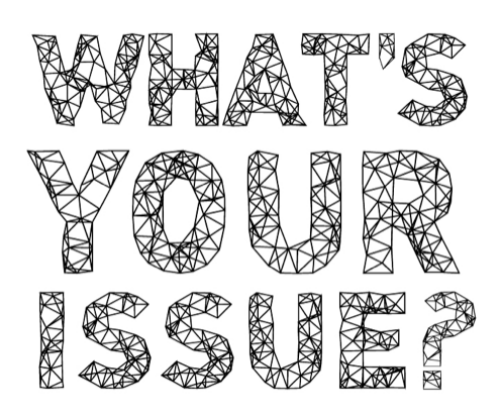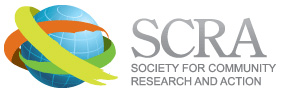Submitted by David M. Frost, Michelle Fine, María Elena Torre, Allison Cabana
Highlights
LGBTQ & GNC youth experience economic hardships and social stress in ways that continue to pose a threat to their health and well-being.
────
LGBTQ & GNC youth engage in in activist efforts that can potentially improve their health in addition to furthering social change.
Lesbian, gay, bisexual, transgender, queer (LGBTQ), and gender non‐conforming (GNC) youth experience more economic hardship and social stress than their heterosexual and cisgender peers. However, the ways that LGBTQ & GNC youth resist these forms of structural and social oppression are less well-known. In order to understand how LGBTQ & GNC youth experience and resist economic hardship and social stress, a research collective of LGBTQ & GNC youth, mainly youth of color, community organizers, and academics designed a national participatory research project called “What’s Your Issue?“.
“Engagement in activism may be a health‐enhancing response to economic precarity and minority stress.”
The study indicates the need for new approaches to addressing economic and health inequalities among LGBTQ & GNC youth. Efforts to improve the health and well-being of LGBTQ & GNC youth need to not only address immediate needs for health and safety, but also emphasize intersectional forms of collective action to transform the policies and structures of interlocking oppression around economic, sexuality, racial/ethnic, and gender based struggles. Future efforts aimed at reducing inequalities in health should more directly consider the potential benefits of promoting activism among LGBTQ & GNC youth.
These findings encourage the inclusion of youth as research partners and collaborators in understanding the complexities of their lived experiences as well as what social transformations may be needed to improve their health and well-being.
Methods
LGBTQ & GNC youth ages 14–24 participated in What’s Your Issue?, a national critical participatory action research project. Youth living in the United States (n=5,860) completed a survey containing questions about experiences of economic hardship, such as not having enough to eat and experiencing homelessness, along with questions about stressors related to discrimination, bullying, and harassment, and mental and physical health problems. Youth also reported their involvement in activism in the form of activist behaviors like protesting, engaging in a boycott, and social media activities, along with their chosen causes such as racial justice, environmental justice, and gender and sexual equality.
How Did a Community Psychology Perspective Inform Your Work?
Community Psychology emphasizes the importance of context in understanding individuals’ experiences. This is particularly important when studying social class, because it is context-dependent. For example, someone may have an entirely different sense of social class in college than in high school.
Community Psychology values the use of research to further social justice. This study, and the interpretation of its results, (1) points to ways in which systems of higher education might increase the quality of the educational experience across social class; and (2) provides recommendations to better facilitate access to social resources for all students.
Using a Participatory Action Research approach centered the lived expertise of LGBTQ & GNC youth, we committed to investigating domains determined important by previous research and the lived experiences of youth. Youth colleagues insisted that we include questions about economic hardship, stressors, bullying and suicide, as well as questions about political engagement, activism, and solidarities. Had we not included these additional domains, we would have missed the robust and rich complexity of LGBTQ & GNC youth lives, and we would not have been able to show evidence regarding the previously overlooked association between activism and positive health outcomes for LGBTQ & GNC youth.
Results
The survey data showed that experiences of economic hardship and stressors related to discrimination and bullying were associated with a greater likelihood of experiencing health problems; however, these associations were partly explained by engagement in activism. Specifically, LGBTQ & GNC youth’s experiences of hardship and stress were associated with a greater likelihood of getting involved in activism, and involvement in activism was associated with fewer health problems. Key findings of the study are as follows:
- Economic hardship was associated with poorer health among LGBTQ & GNC youth.
- This association was partially explained by minority stress and activism.
- Minority stress was linked to poorer heath, but also heightened activism.
- Engagement in activism was associated with fewer health problems.
- These associations varied based on intersections of both gender and race/ethnicity.
What Does This Mean For?
Practice— Social change efforts should consider the potential benefits of promoting activism among LGBTQ & GNC youth reducing the health problems that are known to come from economic hardship and stress related to discrimination and bullying.
Research and Evaluation— There are potential health benefits of activism, collective action, and resistance for LGBTQ & GNC youth experiencing economic hardship and stress related to discrimination and bullying. These need to be further explored.
Social Action— In addition to being necessary for social change efforts, activism can be a potentially health-enhancing response to economic hardship, stress related to discrimination, and bullying experienced by LGBTQ & GNC youth.
Original Citation: Frost, D. M., Fine, M., Torre, M. E., & Cabana, A. (2019). Minority Stress, Activism, and Health in the Context of Economic Precarity: Results from a National Participatory Action Survey of Lesbian, Gay, Bisexual, Transgender, Queer, and Gender Non‐Conforming Youth. American journal of community psychology. DOI: https://doi.org/10.1002/ajcp.12326 Access it here: https://www.ncbi.nlm.nih.gov/pubmed/30989666
Does the relationship between health outcomes and social action interest you? Check out: With Racism Everywhere, What makes Youth “Engage Against the Machine?”



